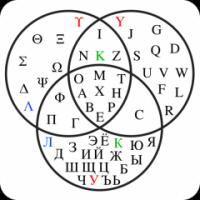Aportes: 10
Idioma: English
Christa627 (Mostrar perfil) 25 de noviembre de 2014 21:51:39
 .
.Dankon!
RiotNrrd (Mostrar perfil) 25 de noviembre de 2014 22:02:25
I'm just reporting on the entry, here, and won't argue the logic of it.
Eltwish (Mostrar perfil) 27 de noviembre de 2014 02:20:18
matrix (Mostrar perfil) 27 de noviembre de 2014 04:15:43
Christa627:I am looking for a word, not for the dish, but the food in the dish, as in "green bean casserole."Gratenaĵo may translate “casserole” in the meaning of food that you are looking for.
So, “green bean casserole” → “gratenaĵo el verdaj fazeoloj”, “gratenitaj verdaj fazeoloj”.
Therefore, in this case, the “casserole” used to cook the food is a gratenujo.
sudanglo (Mostrar perfil) 27 de noviembre de 2014 09:39:53
So stufaĵo - which has the advantage over kaserolaĵo of being derived from a verb (stufi) rather than from a noun (kaserolo)
But if you are going to derive the dish from what it is cooked in, then marmitaĵo would also be a possibility.
erinja (Mostrar perfil) 27 de noviembre de 2014 18:31:37
Personally - green been casserole - "fazeola bakaĵo" or something like that.
Christa627 (Mostrar perfil) 27 de noviembre de 2014 19:43:01
matrix:Hmm... "grateni": to cover food with buttery bread crumbs or cheese, and bake until brown.Christa627:I am looking for a word, not for the dish, but the food in the dish, as in "green bean casserole."Gratenaĵo may translate “casserole” in the meaning of food that you are looking for.
So, “green bean casserole” → “gratenaĵo el verdaj fazeoloj”, “gratenitaj verdaj fazeoloj”.
Therefore, in this case, the “casserole” used to cook the food is a gratenujo.
Well, this particular concoction is covered with french fried onions, but the idea is about the same, so that would probably work.
marbuljon (Mostrar perfil) 2 de diciembre de 2014 09:23:14
For casserole the food, they apparently just say "form-food" or "cooking-pot-food", the latter being the same word as "stew-pot food". They also like to call a loaf of bread "form-bread" because it was baked in a form instead of just plopped down onto wax paper and shaped by hand.
According to my dictionary, in Swedish all these container-related words translate to the same single word: stew, cauldron, casserole, terrine.
In Icelandic, the word for casserole pot is apparently "saucepan" and it's described as a "long-handle pot".
I don't know if that helps any.
mkj1887 (Mostrar perfil) 22 de junio de 2016 02:08:38
Christa627:When I try to find a translation for "casserole," all the results I get re-translate as a kind of baking dish. I am looking for a word, not for the dish, but the food in the dish, as in "green bean casserole." Now being Thanksgiving time, and green bean casserole being one of my favorite Thanksgiving foods, I would like to know what to call it in my favorite language, EsperantoIt may matter less than you think, because of the phenomenon of metonymy..
Dankon!
vejktoro (Mostrar perfil) 22 de junio de 2016 03:22:19
sudanglo:As I understand it there is very little difference between a stew and a casserole.
....if you are going to derive the dish from what it is cooked in, then marmitaĵo would also be a possibility.
erinja:Except that what we call a casserole in English is a dish baked in a wide and shallow baking dish. A "kaserolo" is more like a stew pot, a dutch oven type thing. So a "kaserolajxo" would be more of a stew than a casserole.Funny reading this thread.. nobody seems to have the same 'idea' of what casserole and other food things are in English. Nevermind Eo.
Personally - green been casserole - "fazeola bakaĵo" or something like that.
For example, for me, casserole is absolutely nothing like stew. Casserole can totally be cooked in a deep pot such as a dutch oven.. in fact, some popular casseroles here are cooked in a large bowl.
The food IS called the dish here, and you can serve the dish on a dish, but you would never cook in a dish.. you'd use a pot for that! Eating a dish outta the pot is just too bachelor. and so on and so on.
I think, Christa627, you should just find a short way to describe the dish as understood in your neck of the woods and offer a longer explanation if anyone asks - same as would happen in a native tongue if this thread proves anything.
I likes erinja's 'bakajxo'.. maybe kaserola bakajxo.







